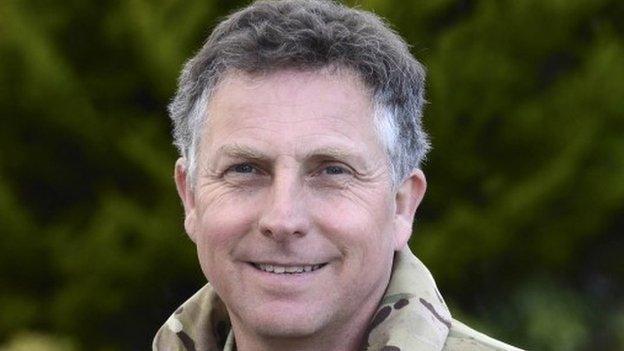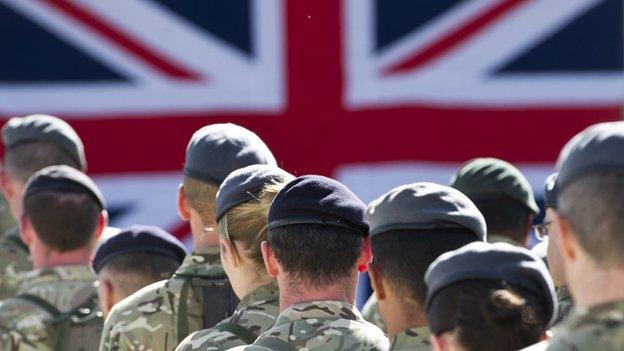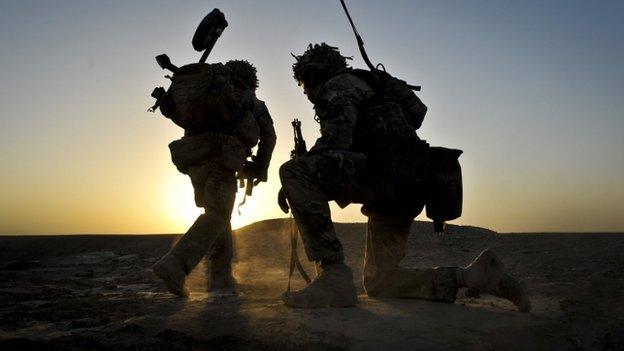Army head launches 'crackdown' on bullying and harassment
- Published

Gen Carter has been head of the Army since September 2014
The head of the Army is bringing in a new code of conduct to crack down on bullying and sexual harassment.
General Sir Nicholas Carter said his institution should "accept everyone in an inclusive way".
He has told hundreds of men and women at Sandhurst to project a "no tolerance" message against prejudice.
A recent survey suggested almost 40% of servicewomen had received unwanted comments of a sexual nature in the past year.
The report, based on a survey of 7,000 soldiers and commissioned by the Army, also found 13% of women questioned had had "a particularly upsetting experience".
'Values and standards'
Gen Carter told BBC Radio 4's Today programme that the Army recognised "the world was moving on, and the Army had to move with it".
Asked if he was trying to turn the Army into a "politically correct brigade", he said: "No, I'm not arguing for political correctness, what I'm arguing for is to live by our values and standards and to accept everyone in an inclusive way.
"I think there is a risk we will lose sight of our ultimate goal, which is to close with and kill the Queen's enemies, and we have to have that at the forefront of our mind, but equally we cannot accept unacceptable behaviour."
According to government statistics, over the past few years the proportion of women in the UK forces has been rising across all three services; the Royal Navy, the Army and the Royal Air Force.
In July 2014, there were 15,780 women serving across the armed forces - or 10% of the total number of personnel.
'We're on a journey'
Gen Carter also said the Army had a "problem" with the lack of black, Asian and minority ethnic (BAME) soldiers.
He admitted there were not enough soldiers from such backgrounds, and wanted to include more, because he wanted "more talent".
"We are on a journey here and I'm making a commitment personally as the head of this institution to try and change that," he said.
"Give me time - the effort is there and we are going to do something about it."
Soldiers from black, Asian and minority ethnic groups make up just over 10% of the Army's 87,000 regular personnel, slightly less than the proportion in the wider population, but many come from Commonwealth countries, not the UK.
- Published12 July 2015

- Published6 February 2015
